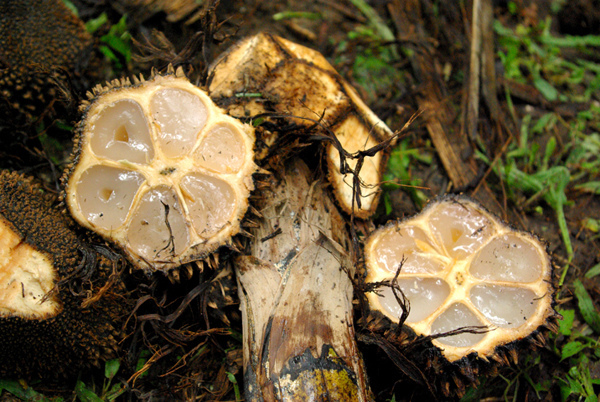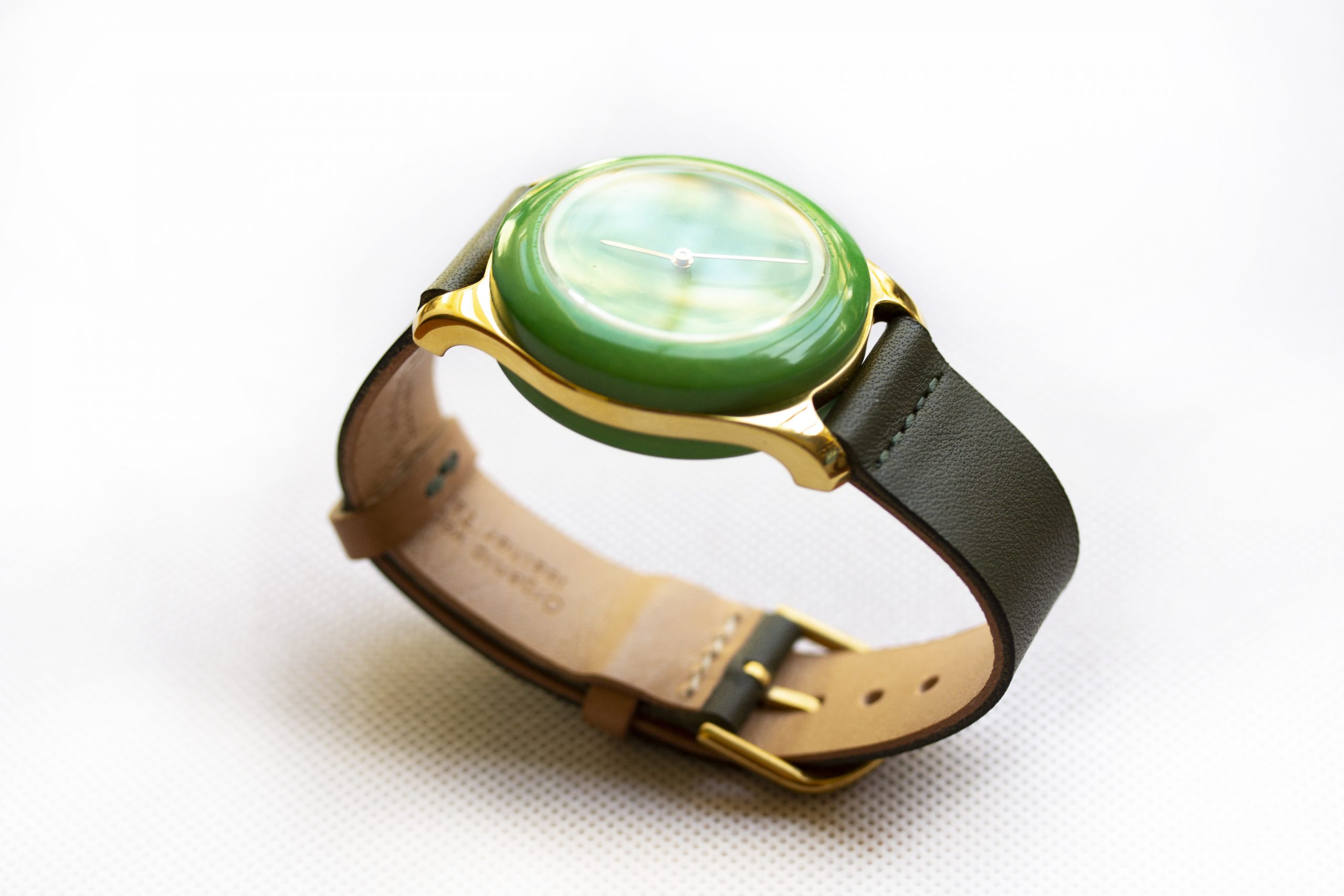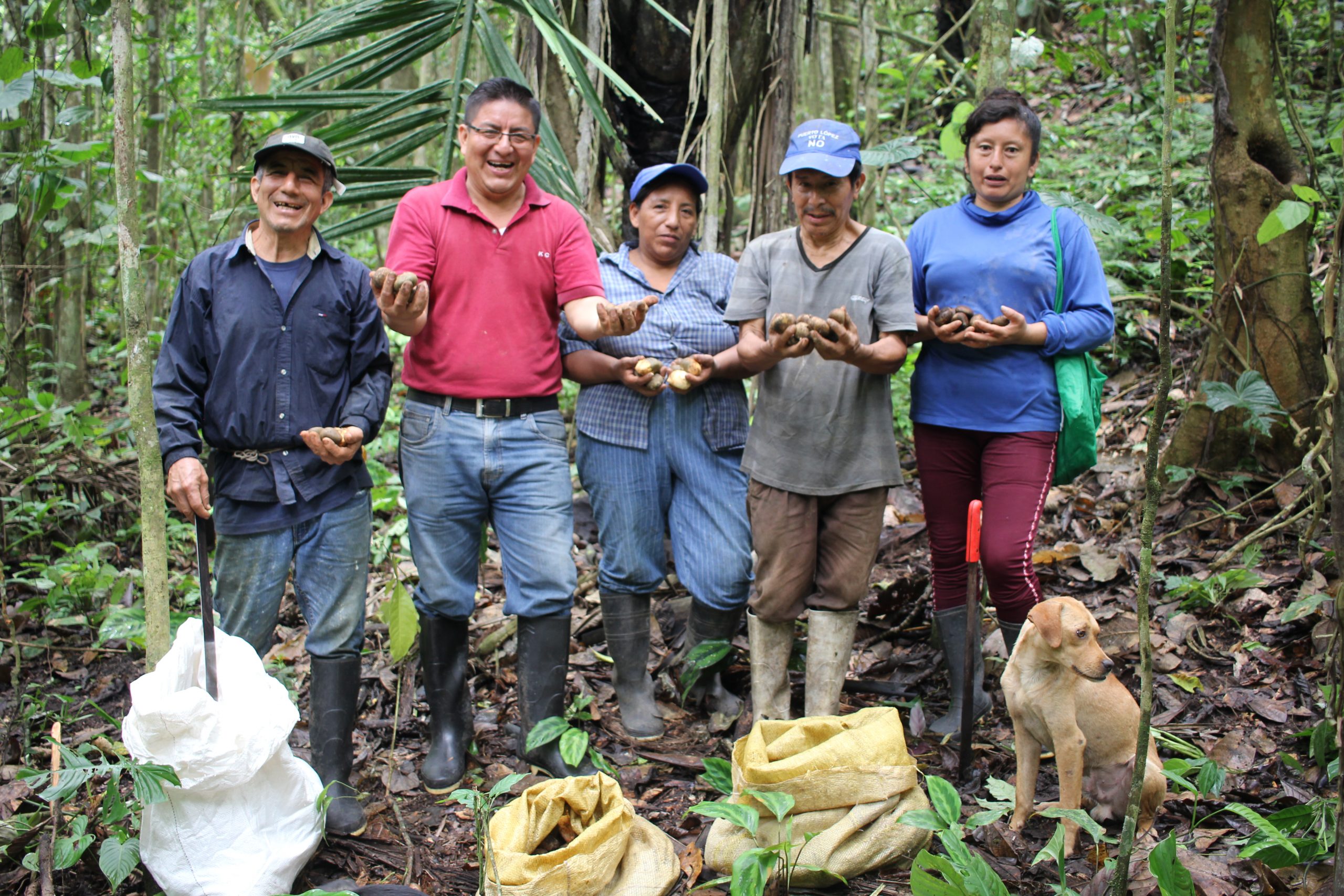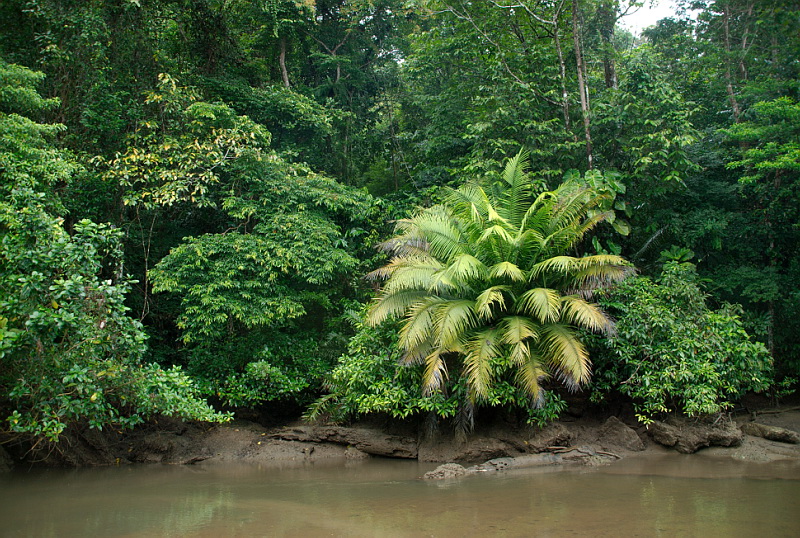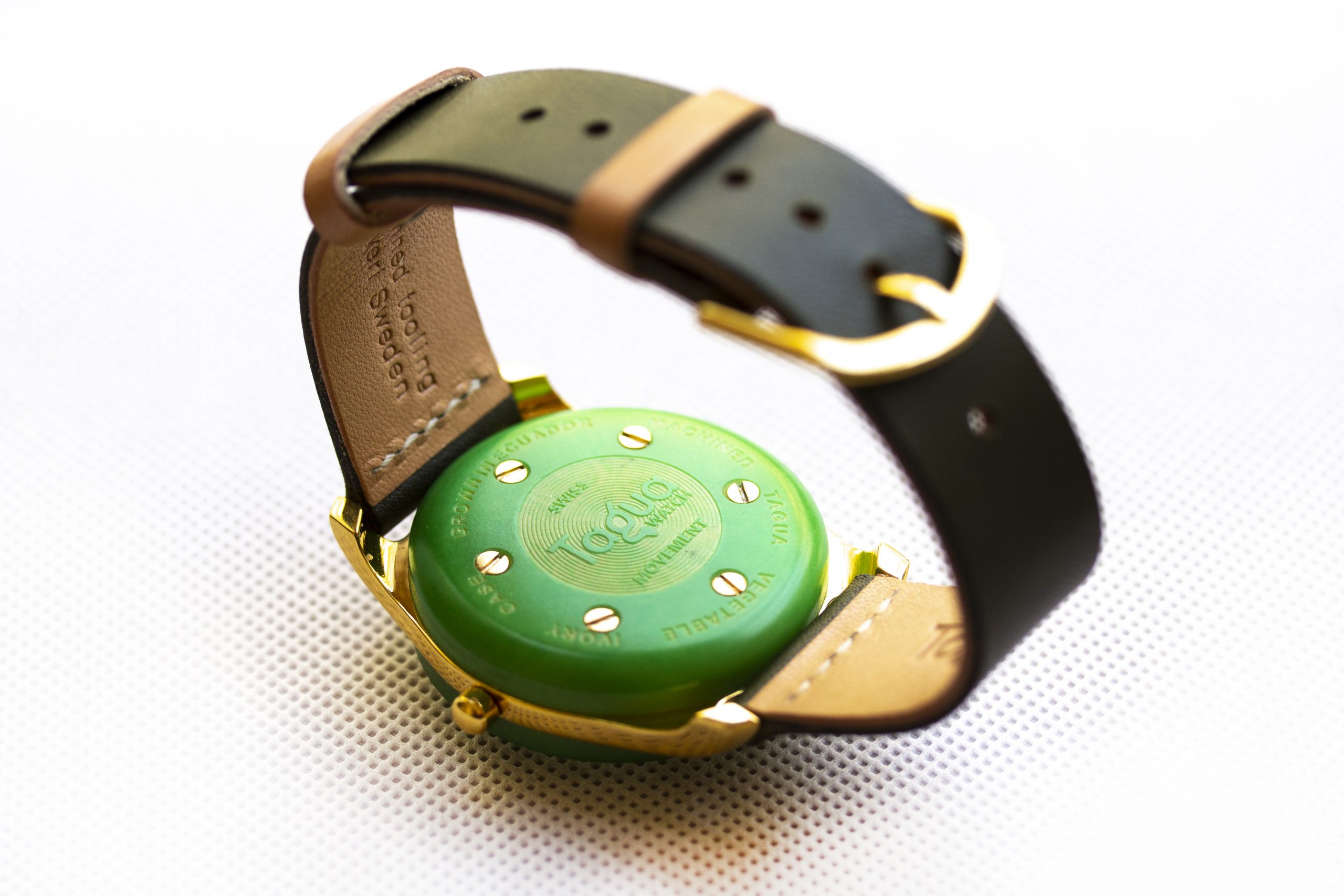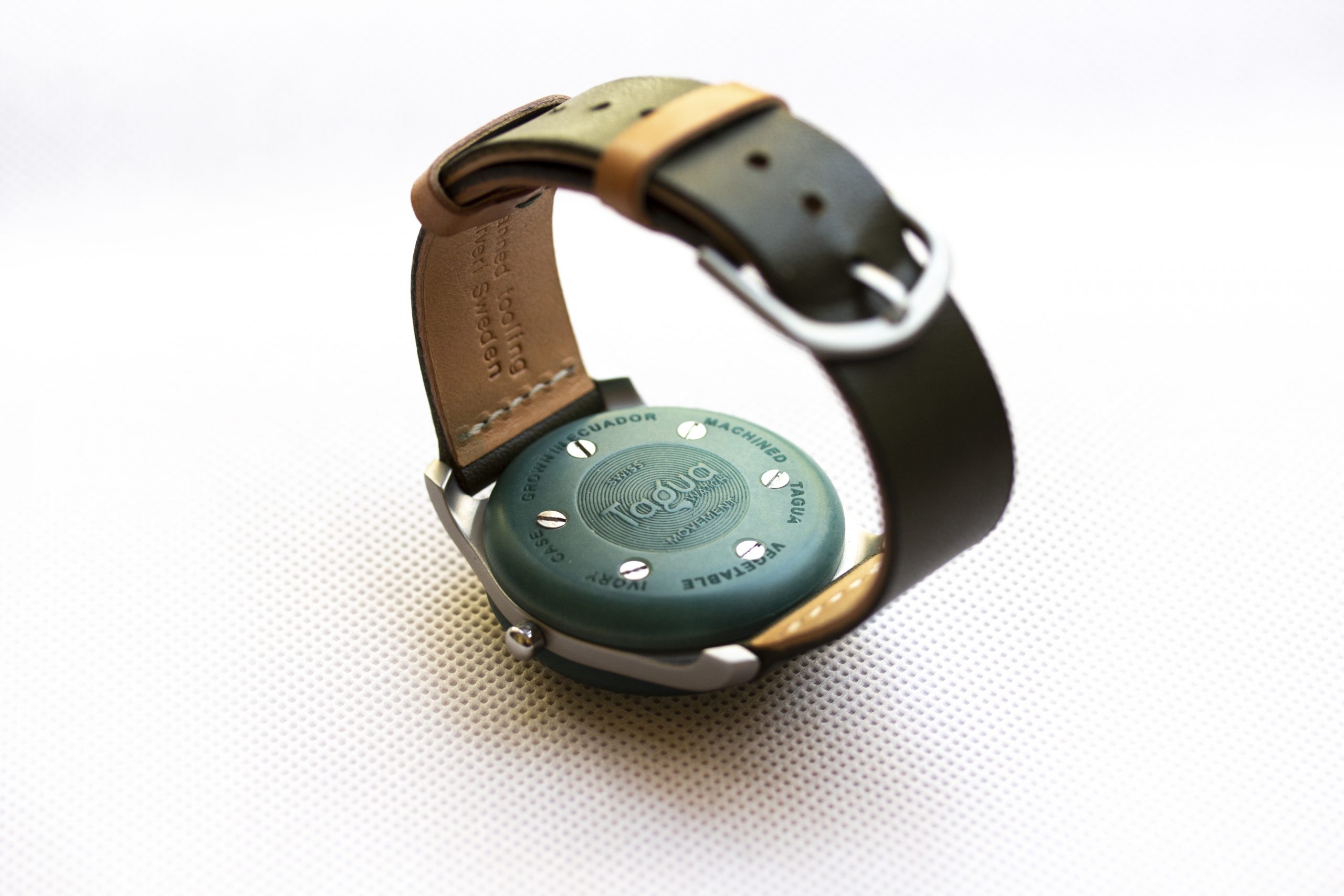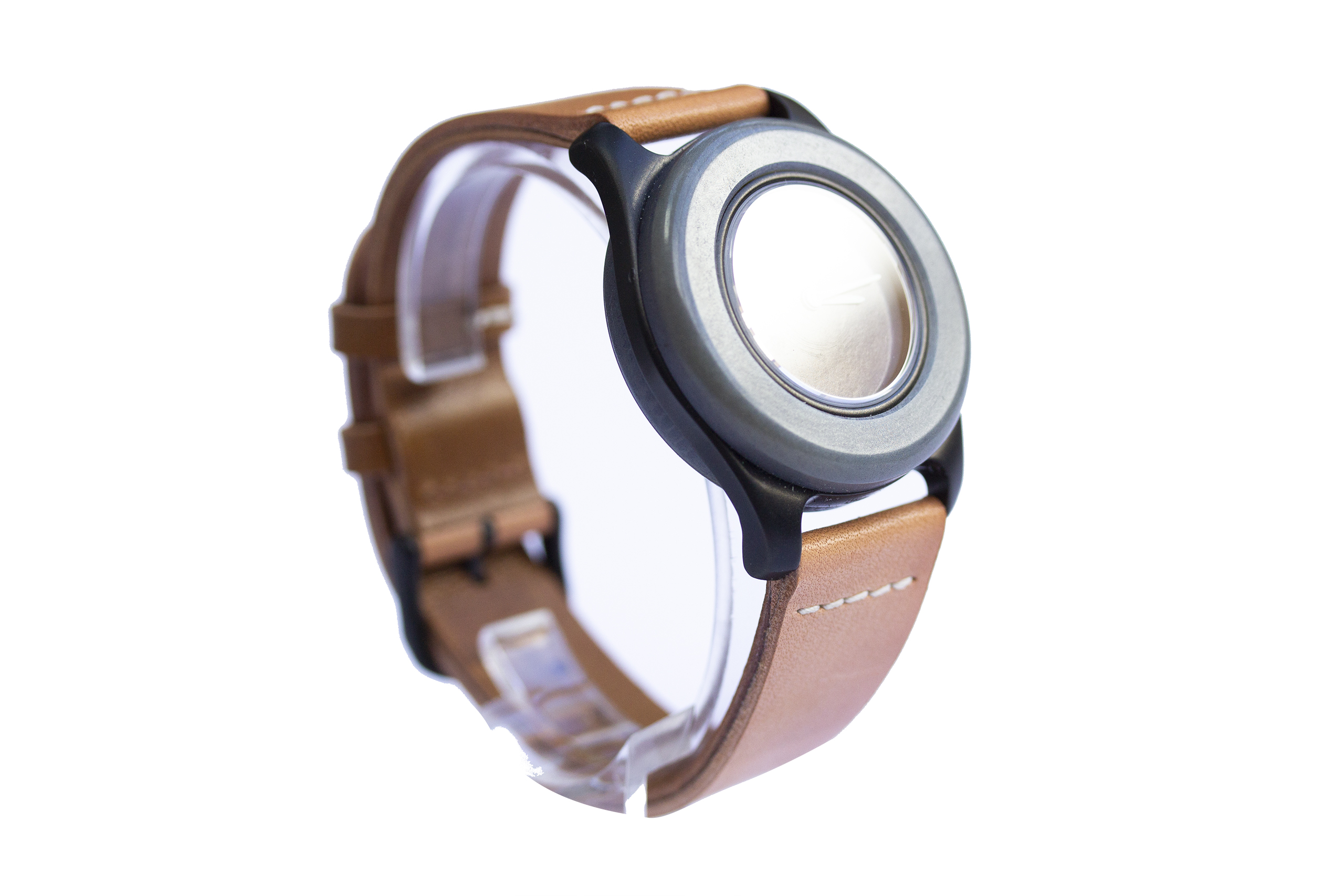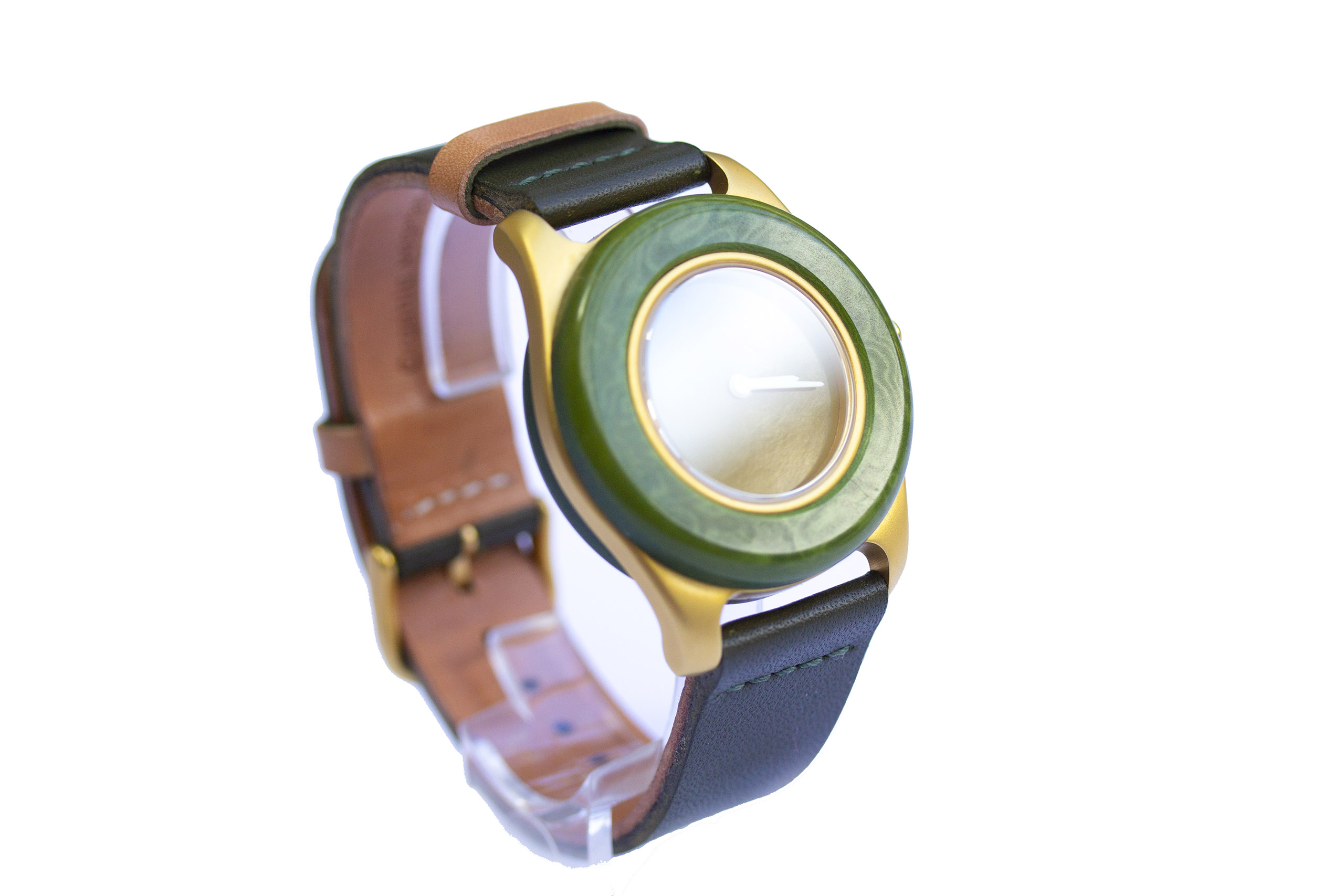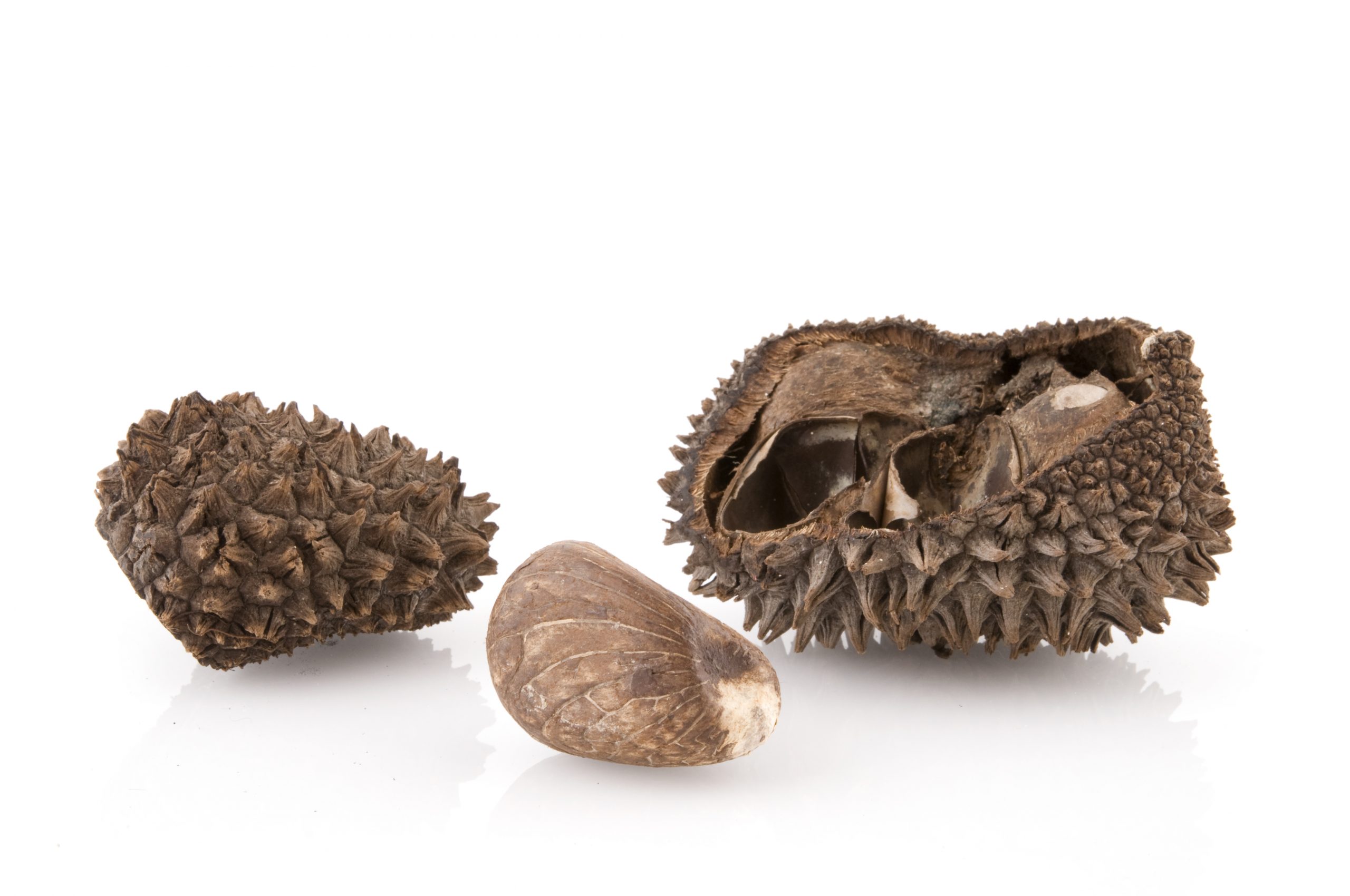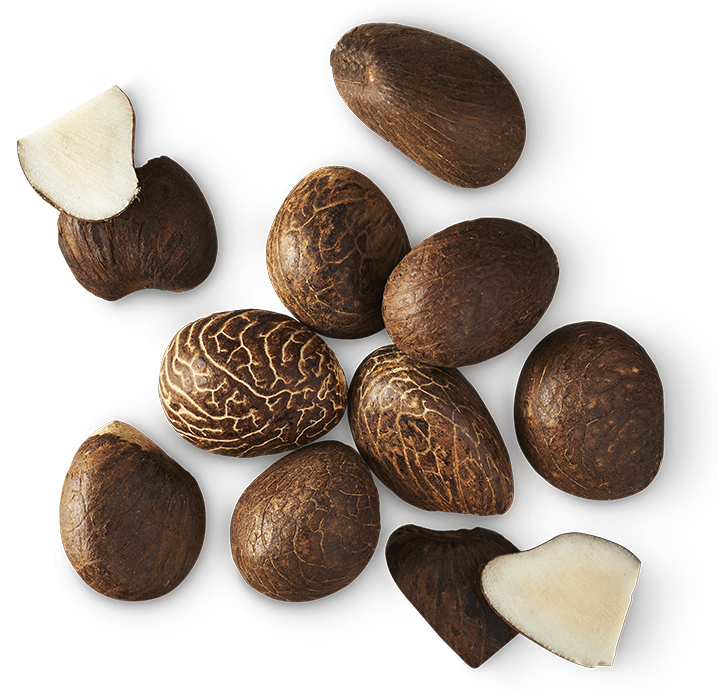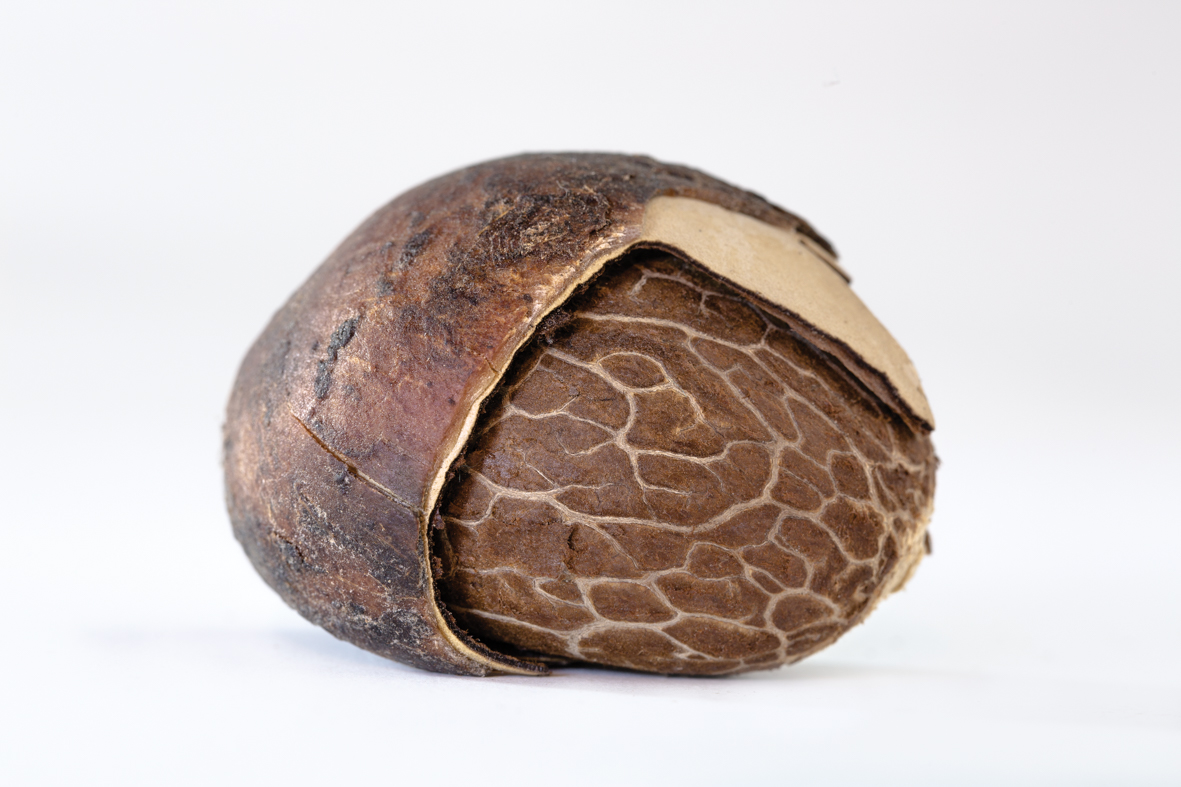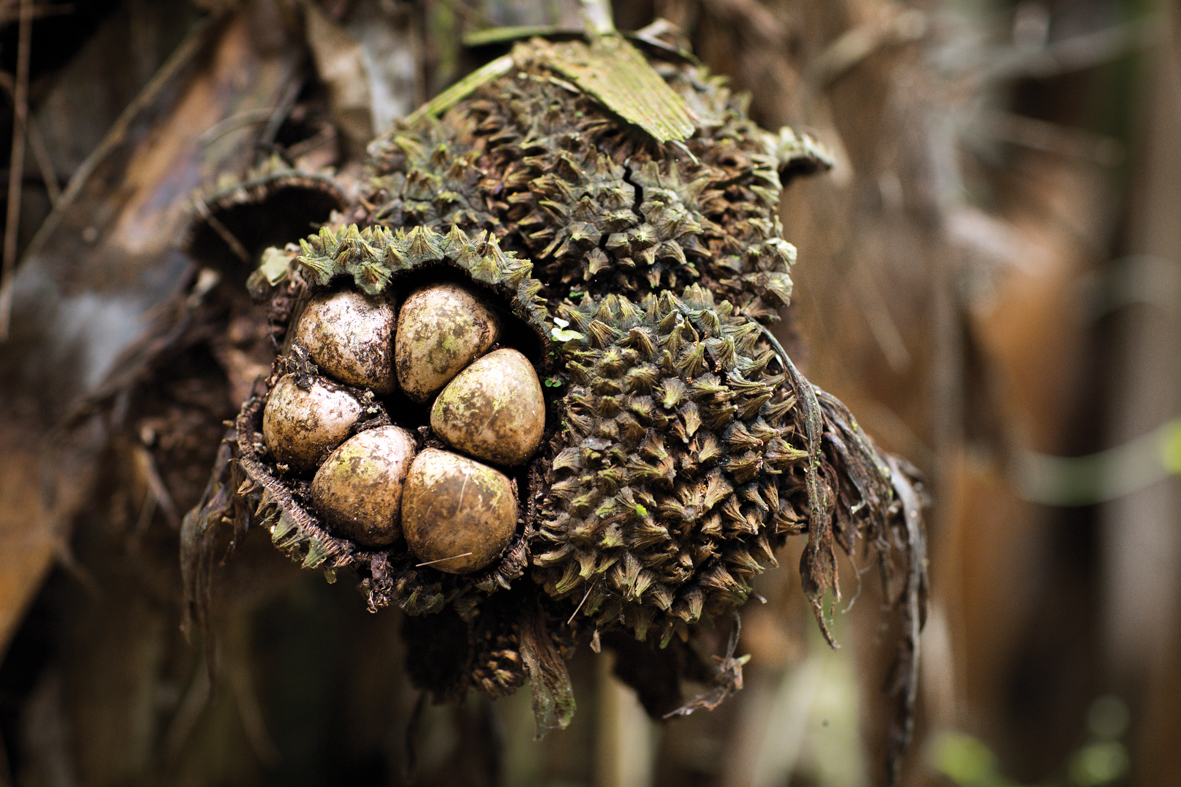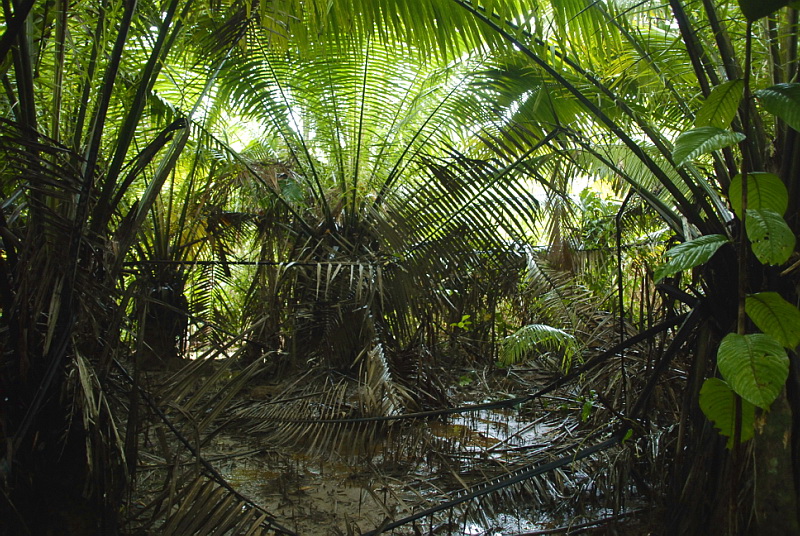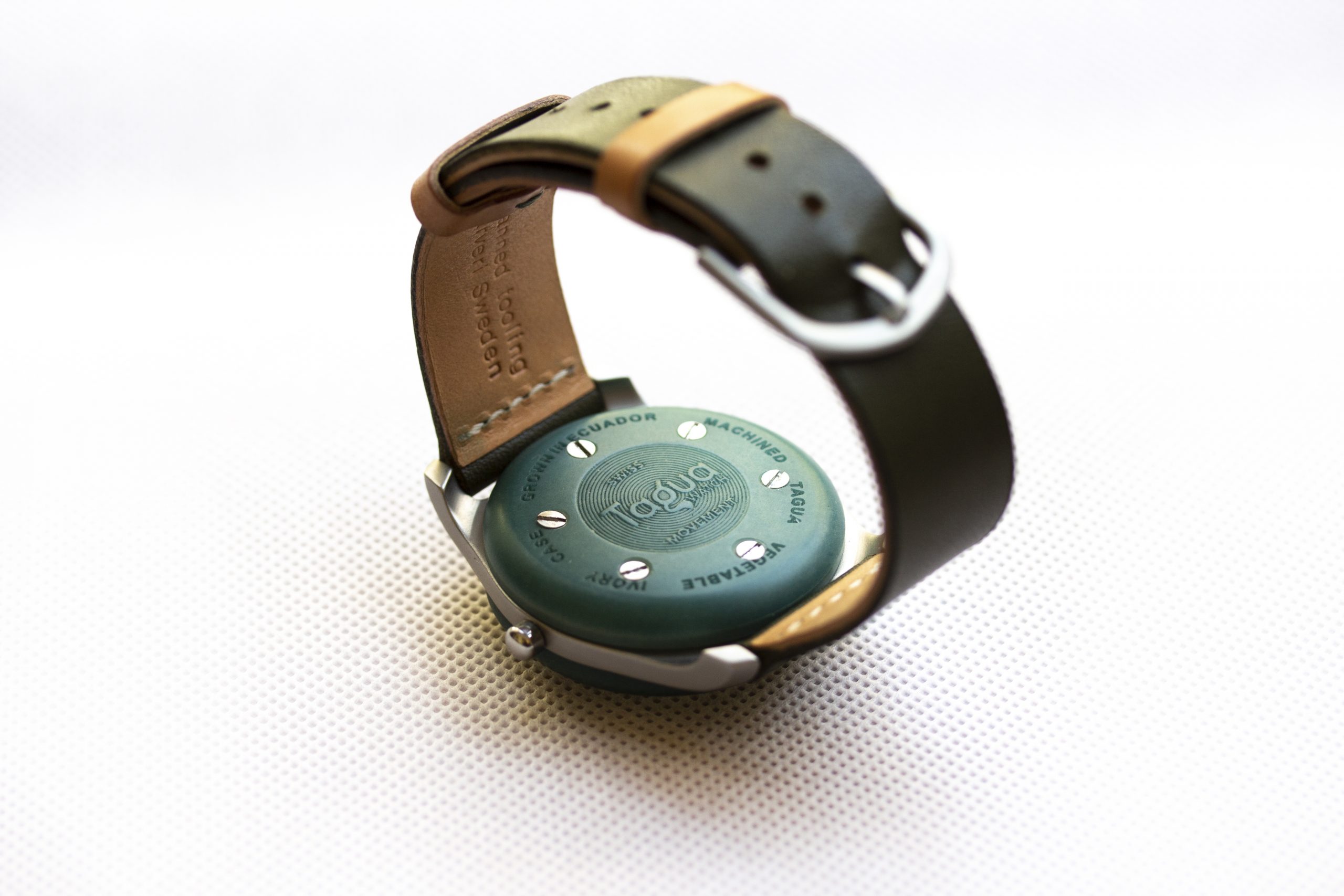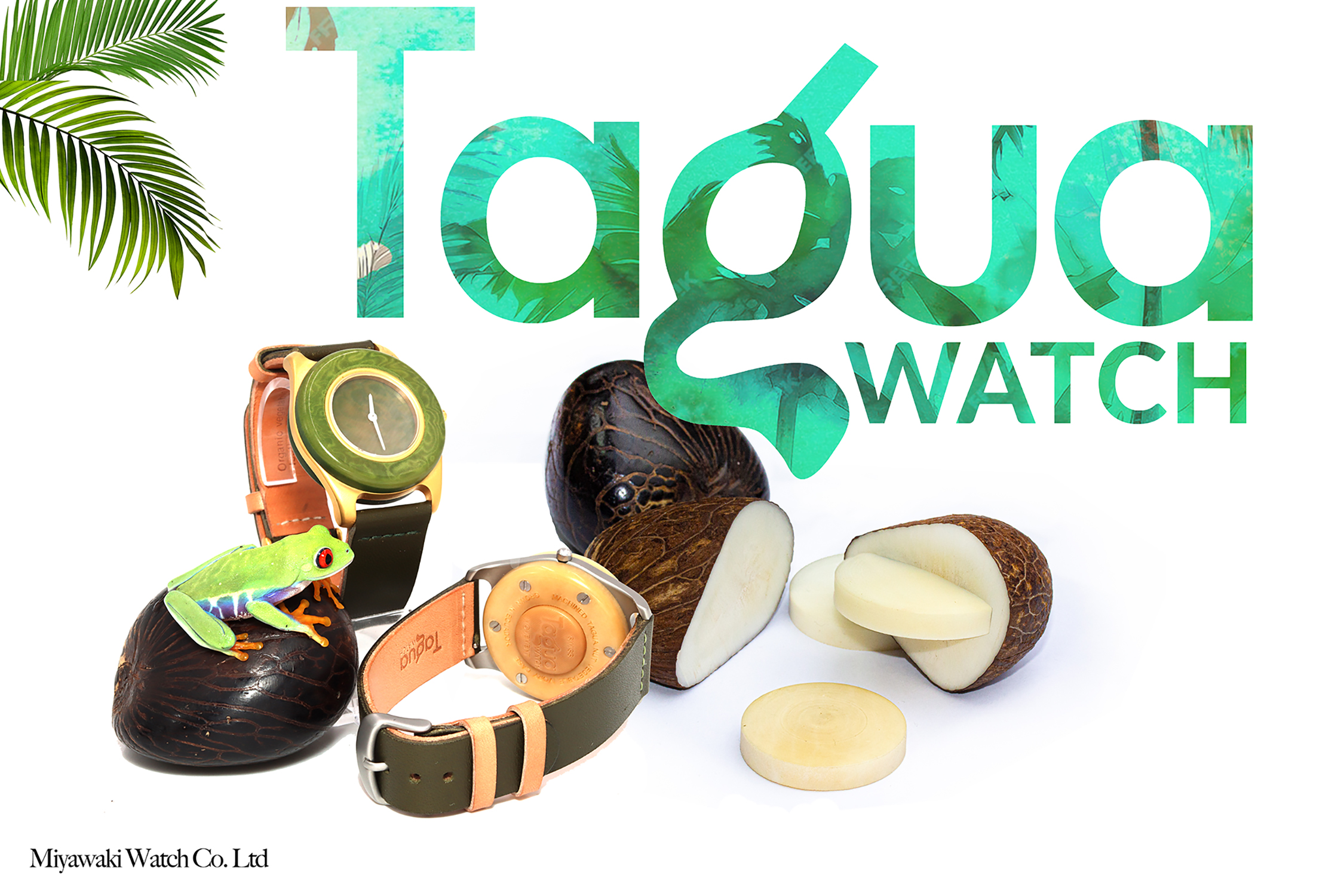
TAGUA – A BOTANICAL & 100% NATURAL IVORY-LIKE MATERIAL
In South America, Tagua nuts are also known as ‘vegetable ivory’ (Phytelephas Aequatorialis Macrocarpa) which literally translates as plant elephant. They originate from huge fruits that grow on the Ecuadorian Tagua palm. When they fall to the rainforest floor, the fruits are partially eaten by animals and then collected by local communities in a totally non-invasive way. They contain many edible nuts, the size of a chicken egg, that become hard as a stone after 45 to 60 days of drying. Our nuts are dried for over a year to ensure that they develop their ivory-like properties and hardness we require. They can then be carved by hand or machined. If the value and demand of tagua continues to grow, this in turn preserves the rainforest where it grows.
Ivory has been considered as a valuable raw material since prehistoric times. However, excessive trade of elephant ivory has contributed to the decline of of African elephants, which are known for their massive tusks. Artificial substances like celluloid and other plastics have been used as ivory replacement, but they lack the appeal of naturally occurring fibers and polymers and their widespread use brings concerns related to the slow degradation rates of plastics in the biosphere.
Used for centuries in jewellery as an alternative to ivory, the Tagua nut has properties that are only now being rediscovered. Once a popular material in the clothing industry, a large share of the buttons of the British and U.S. military uniforms were made from it during World War II)
In recent years, environmental concerns regarding the biodegradability of plastics have motivated the re-discovery of the tagua seeds.
ABOUT US
The Miyawaki Watch Company manufactures high quality timepieces with an environmental and social conscience as well as first class workmanship. Beginning with our choice of materials, that optimises the social and environmental impact of the product. Tagua nut, a naturally occurring botanical bio-resin also called “vegetable Ivory” is a natural wonder in Ecuador.
The nut or seed comes from the Tagua fruit. They contain many edible nuts, the size of a chicken’s egg, that become hard as a stone after 45 to 60 days of drying. The tree can grow up to 3 meters high that grows in the humid tropics, between 800 and 1,500m altitude. It takes 12 years for the Tree to bear its first fruit, making each nut very precious. This encourages Ecuadorian indigenous communities to preserve their forests and thus avoid deforestation.
The World’s First Swiss Movement Timepiece Made From Vegetable Ivory Found In The Amazon Rainforest
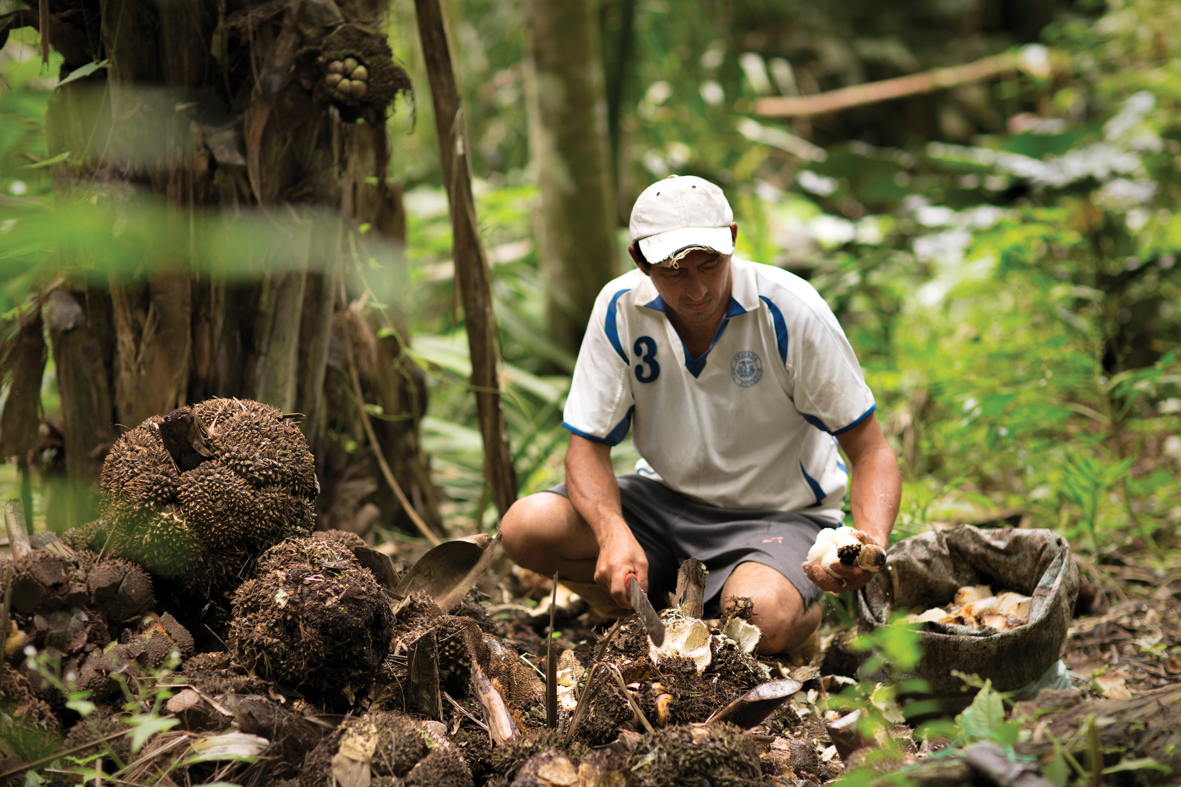
THE JOURNEY OF TAGUA
Used for centuries in jewellery as an alternative to ivory, the Tagua nut has properties that are only now being rediscovered. Once a popular material in the clothing industry, a large share of the buttons of the British and U.S. military uniforms were made from it during World War II), the cultivation and trade of tagua have endured periods of complete abandonment in the past few decades. However, in recent years, environmental concerns regarding the biodegradability of plastic commodities have motivated the re-discovery of the tagua seeds.
The gathering of the Tagua assists with many environmental and social dynamics. By avoiding deforestation, the natural balance of the rainforests in Ecuador is preserved. Because of this sustainable harvest, the families receive additional incomes allowing them to significantly increase their standard of living. As a result, communities have been able to develop new jobs and provide access to education and healthcare through new infrastructure, which is essential to the well-being of the population. Additionally, if the value and demand of tagua continue to grow, this, in turn,
To support these dynamics, we have designed Tagua Watch
The ‘ivory nut’ is turned on a precision lathe after which it is dyed the desired colour and finally laser engraved before polishing.
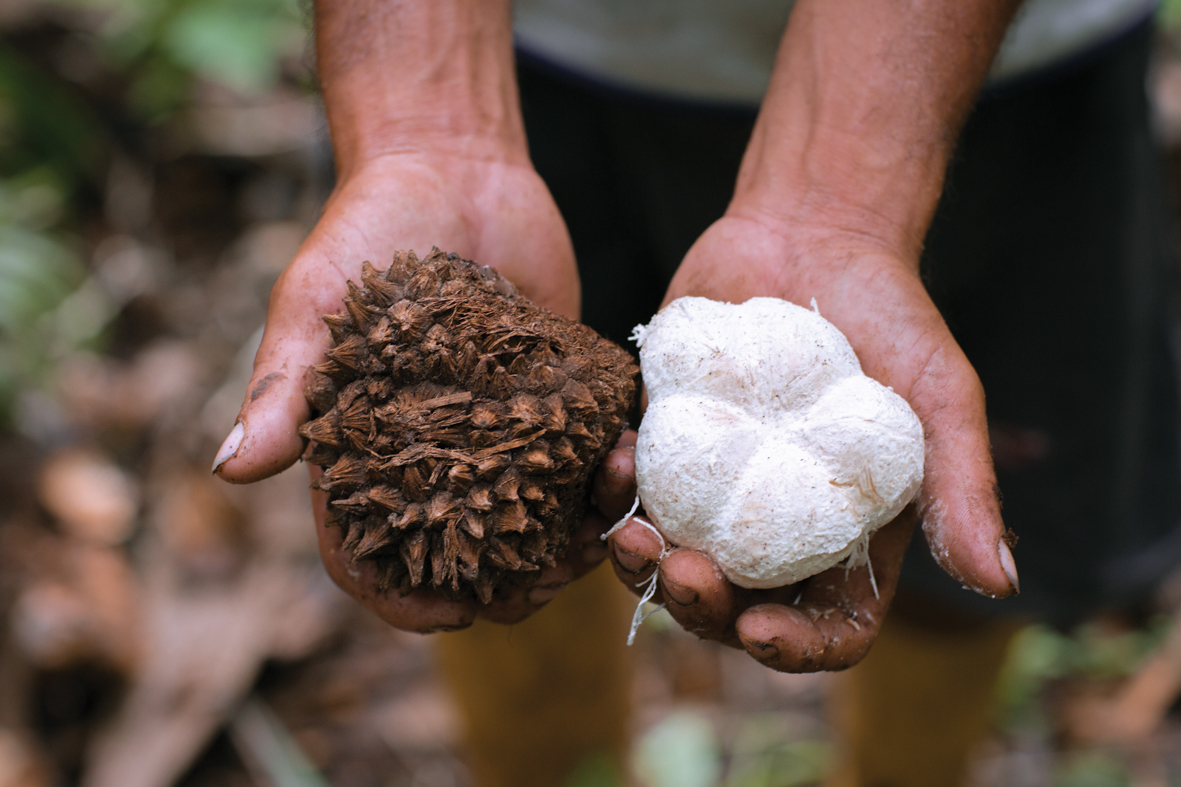
Sustainable Tagua Nut
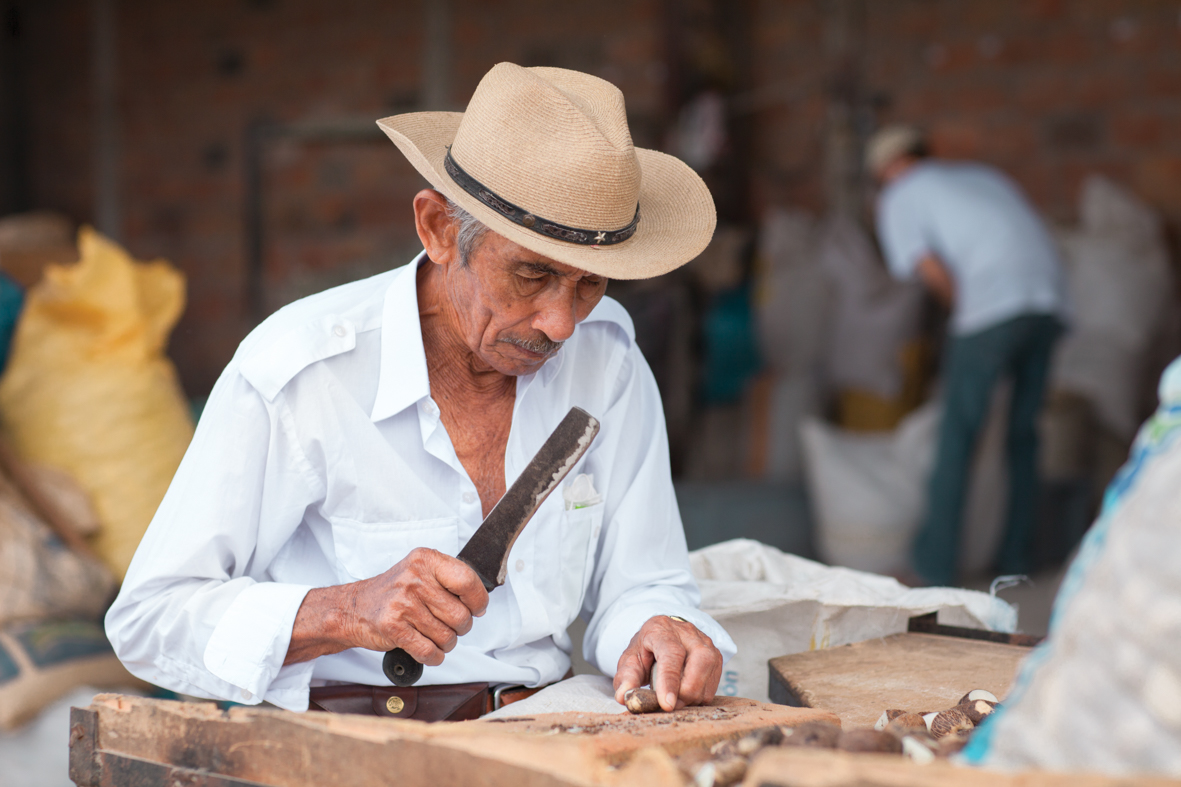
Artisan craftsmen in Manta, Ecuador
Establishment of a permanent nursery with at least 5,000 tagua palms to be distributed to communities so that they can regenerate forests with this native species.
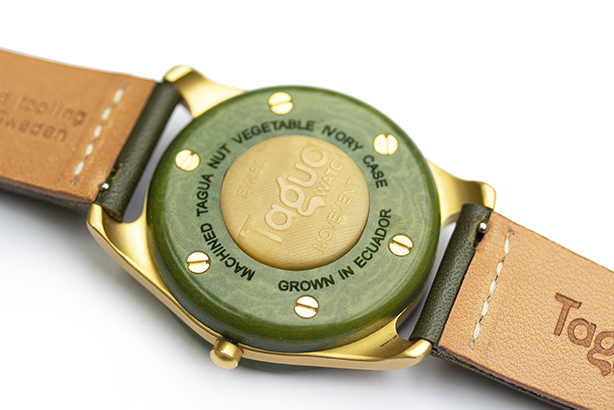
A World First Botanical casing
Our cases are made from a unique bio-resin which we carefully machine to a beautiful finish. The material is hypoallergenic and sustainable.. Tagua watch is a world-first i horology.
A World First Botanical casing
Our cases are made from a unique bio-resin which we carefully machine to a beautiful finish. The material is hypoallergenic and sustainable.. Tagua watch is a world-first i horology.
Vegetable Ivory
In South America, tagua nuts are also known as Vegetable ivory’ in the genus ‘Family: Arecaceae (Phytelephas Aequatorialis Macrocarpa) Phytelephas’ which literally translates as plant elephant. The nuts are machined to make buttons, small sculptures and jewellery. They originate from huge fruits that grow on the Ecuadorian Tagua palm. When they fall to the rainforest floor, the fruits are partially eaten by animals and then collected by local communities in a totally non-invasive way. They contain many edible nuts, the size of a chicken egg, that become hard as a stone after 45 to 60 days of drying. Our nuts are dried for over a year to ensure that they develop their ivory-like properties and hardness we require. They can then be carved by hand or machined. If the value and demand of tagua continues to grow, this in turn preserves the rainforest where it grows.
WATCHES
We are proud to launch the first in the Miyawaki series of material and design led watches . Every tagua `watch timepiece is a unique piece that is crafted from the finest materials and assembled by hand. We Tagua or corozo is beautiful and versatile natural botanical cellulose; it can be changed to any colour Pantone through a dyeing process that penetrates deep into the ivory-like tagua. We also laser engrave and CNC the watch to make each unique model. The nuts are first gathered from the forest floor with no harm to the local ecosystem and then carefully dried for over a year before being sent to an artisan to turn into a ‘blank’ disc of tagua nut. This is then machine cut, laser engraved and cut before being assembled into a fine timepiece.
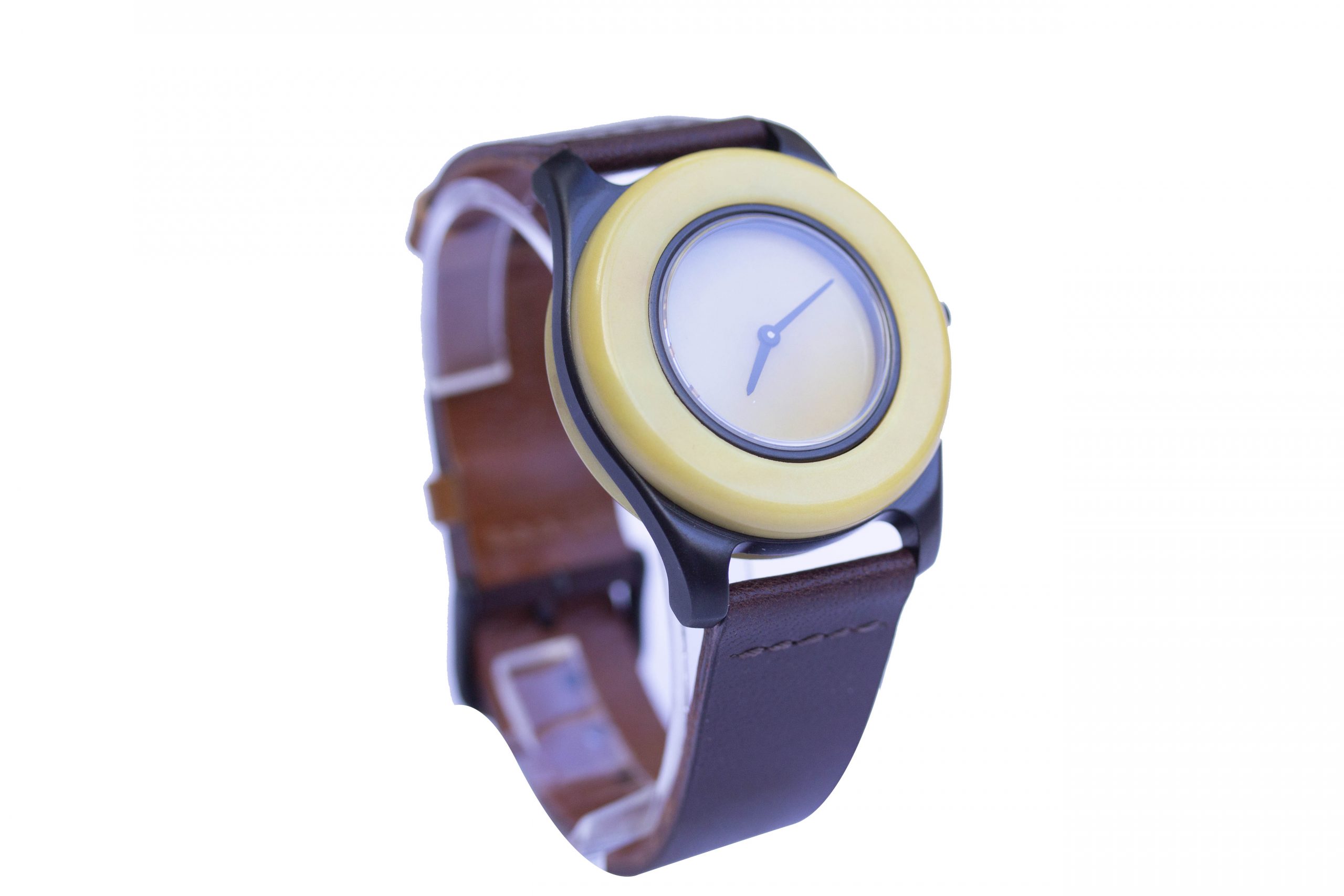
THE TAGUA WATCH SERIES 1
CASE MATERIAL
• Tagua nut ‘vegetable ivory’ case hand gathered, milled and dyed in Panama, Central America
MOVEMENT:
• Swiss made 4 jewel Ronda Analogue quartz movement • Each watch numbered and a limited edition
• Standard battery life 7 years
• Swiss made version
• Power saving mechanism
DIAL & HANDS:
• Swiss Super Luminova coated hands or black steel batons
INNER FRAME & LUGS:
• CNC made Stainless steel 316 PVD coated and shot blasted
SAPPHIRE CRYSTAL GLASS
•
Scratch resistant and crystal clear
MOVEMENT HOLDER
• 100% Bio-based resin made from caster seeds
STRAP & BUCKLE:
• Swedish organic tool leather vegetable dyed no chomium used. Matching PVD coated steel buckle
•
SUSTAINABLE PACKAGING
• A hand-made balsa wood box from Ecuadorean balsa composite used for Wind turbine manufacture
Balsawood Packaging
The gathering of the Tagua assists with many environmental and social dynamics. By avoiding deforestation, the natural balance of the rainforests in Ecuador is preserved. Because of this sustainable harvest, the families receive additional incomes allowing them to significantly
Panama and Ecuador.
The gathering of the Tagua assists with many environmental and social dynamics. By avoiding deforestation, the natural balance of the rainforests in Ecuador is preserved. Because of this sustainable harvest, the families receive additional incomes allowing them to significantly increase their standard of living. As a result, communities have been able to develop new jobs and provide access to education and healthcare through new infrastructure, which is essential to the well-being of the population.
Creation of a network cooperative of Tagua nut collectors, who nowadays are isolated and not organised, so are victims of abuse by middlemen who buy the Tagua nuts they collect at unfair prices.

